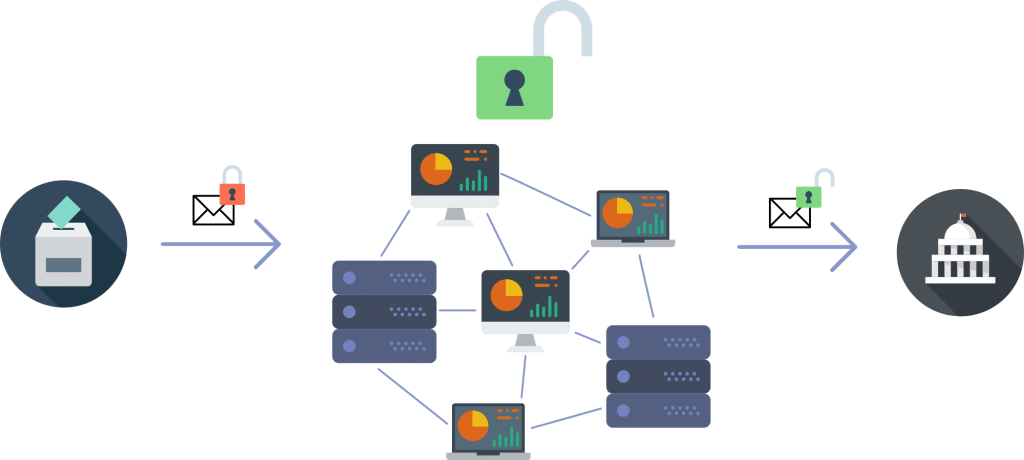Blockchain technology is no longer just a buzzword. In fact, businesses across a variety of industries are finding new and innovative ways to use the technology to improve their operations and better serve their customers.
At its core, blockchain is a decentralized digital ledger that records transactions across a network of computers. These transactions are grouped together in blocks, which are then linked together in a chain, hence the name “blockchain.”
Blockchain Developer
A Blockchain Developer is a software developer who specializes in the development and implementation of decentralized systems using blockchain technology. They are responsible for creating and maintaining the underlying architecture of blockchain-based applications, as well as developing smart contracts and other decentralized systems.
If you want to become a blockchain developer:
It would be beneficial to have a strong understanding of the following coding languages and technologies:
- Solidity: This is the most popular programming language for writing smart contracts on the Ethereum blockchain.
- JavaScript: This is a popular language for building decentralized applications (dApps) on the web.
- C++: This is a popular language for implementing blockchain nodes and some blockchain platforms like EOS and Hyperledger fabric.
- Go: This is a popular language for building blockchain applications and is used by projects such as Ethereum and Hyperledger Fabric.
- Python: This is a versatile programming language that is commonly used for data analysis and machine learning, but it’s also used for blockchain developments like Ethereum, EOS, and Hyperledger Sawtooth.
- Understanding of distributed systems, cryptography, and consensus algorithms.
- Familiarity with development tools such as Truffle, Ganache, and Remix.
It’s IMPORTANT to note that the Blockchain field is still evolving, so new technologies and tool will appear in the future. Keep yourself updated and learn new skills as they become more relevant.
Supply Chain Management

Blockchain technology is used in supply chain management to create a decentralized, transparent, and tamper-proof record of transactions. This can be used to track the movement of goods and materials from the point of origin to the point of consumption, providing increased visibility and accountability throughout the supply chain.
Examples of businesses using blockchain in supply chain management include:
- IBM Food Trust: IBM has developed a blockchain-based platform that is being used by a number of food and retail companies to track the movement of food products through the supply chain. This helps to improve food safety, reduce waste, and increase efficiency.
- Walmart: Walmart has been using blockchain technology to track the movement of goods through its supply chain. This includes tracking the movement of products such as pork and produce, which helps to improve food safety and reduce waste.
- Maersk: Danish shipping giant Maersk has developed a blockchain-based platform to track the movement of cargo containers through the supply chain.
- Everledger: Everledger is a blockchain-based platform that uses blockchain technology to track the movement of diamonds, and other valuable assets, through the supply chain. This helps to increase transparency and reduce the risk of fraud.
These are just a few examples, many other industries and companies are exploring the use of blockchain in supply chain management to improve transparency, security, and efficiency.
Digital Identity
By using blockchain-based digital identities, individuals and businesses can prove who they are without relying on centralized authorities like governments or banks. This can be especially useful for people who lack traditional forms of identification or for businesses that need to verify the identity of their customers or employees.
Sovrin – A blockchain-based digital identity platform that enables individuals and organizations to establish trusted relationships online. The platform is built on a decentralized, distributed infrastructure that allows individuals to create and manage their own digital identities.
Voting

By using a decentralized and secure system for recording votes, blockchain can help to ensure that every vote is counted accurately and that the results of an election are tamper-proof.
West Virginia’s 2018 primary elections – The state used a blockchain-based mobile voting platform called Voatz, which allowed military personnel overseas to vote via their smartphones. The system was a success, with more than 150 military personnel casting their votes using the platform.
Estonia – known for its e-government solutions, has been experimenting with blockchain-based voting systems. In 2017, Estonia’s Ministry of Economic Affairs and Communications ran a pilot program that allowed shareholders of companies to vote on various issues using blockchain technology.
Healthcare
One example of how blockchain is being used in healthcare is through electronic medical records (EMRs). Many hospitals and clinics currently use EMRs to store patient information, but these systems can be vulnerable to cyberattacks. By using blockchain to store EMRs, healthcare professionals can ensure that patient information is secure and can be easily accessed by authorized individuals.
Another example of blockchain in healthcare is in the realm of medical research. Often times, researchers have a hard time getting access to the large amount of data they need for their studies. By using blockchain, researchers can securely and easily share data with one another, speeding up the research process and potentially leading to new treatments and cures.
Real estate
Blockchain can be used to streamline the process of buying and selling property by making it easier to track ownership and transfer title.

Ubitquity – A blockchain-based platform that allows real estate professionals to track and manage property ownership. The platform is currently being used by title companies, real estate agents, and other real estate professionals to streamline the buying and selling process.
ShelterZoom – A blockchain-based platform for online real estate bidding. ShelterZoom allows real estate buyers and sellers to make offers and accept offers on properties in real-time, all on the blockchain, making the process more secure and transparent.
Conclusion
Blockchain technology has the potential to revolutionize the way we live and work. It has the ability to make our systems more secure, efficient, and transparent, making it a valuable tool for businesses across a wide range of industries. So, businesses should start exploring how to incorporate blockchain technology in their operations to stay ahead of the curve.

![Blockchain Technology Implement in the Real World [7 min Read]](https://cdcloudlogix.com/wp-content/uploads/2023/01/Blockchain-Technology.png)
